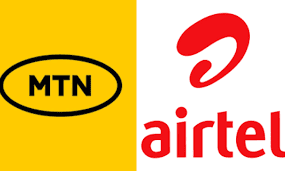MoMo PSB, the mobile money arm of MTN Nigeria, is rethinking its approach after a significant drop in active users. In 2024, the company saw a decline of 2.5 million wallets, a shift CEO Karl Toriola attributed to a strategic move aimed at improving service penetration and profitability.
This development comes two years after MTN and Airtel Africa entered Nigeria’s payment service space, a move that was expected to shake up traditional banking and fintech. With MTN’s mobile money operations spanning 24 African countries and Airtel Money servicing 38 million users across 14 markets, both telecom giants were seen as strong contenders. However, their impact has been more gradual than disruptive.
A Changing Landscape
MoMo PSB is one of five Payment Service Banks (PSBs) licensed by Nigeria’s Central Bank (CBN) between 2021 and 2022. These banks, which include 9mobile’s 9PSB, Airtel’s Smartcash PSB, Unified Payment’s Hope PSB, and Globacom’s Money Master PSB, were established to expand financial services to underserved communities. However, strict licensing restrictions prevent them from offering loans, forex services, or making investments beyond government-approved securities, limiting their revenue streams.
Despite efforts to gain ground, PSBs have struggled to match the reach of fintech giants like Opay, Moniepoint, and Palmpay, which have quickly onboarded millions of users. A key challenge is that mobile money adoption in Nigeria heavily relies on banking agents due to poor internet infrastructure and low smartphone penetration in rural areas. While MoMo PSB has built an extensive agent network, the decline in active wallets suggests a shift in how the company approaches financial inclusion.
Strategic Overhaul
MTN has poured significant investment into MoMo PSB, spending ₦16.4 billion by the end of 2022 to establish operations and injecting another ₦9.4 billion in 2024 after acquiring the remaining 7.17% stake from Acxani Capital. These investments initially fueled rapid growth, with active wallets soaring from 2 million in December 2022 to 5.3 million by the end of 2023. The company’s agent network expanded from 103,000 to 327,000, while its merchant network reached 324,000 within the same period.
However, by 2024, these numbers had taken a sharp downturn. Active wallets plummeted to 2.8 million, while deposits from wallet users were halved, dropping from ₦7.6 billion to ₦3.8 billion. The agent and merchant networks also saw a massive contraction, with merchants shrinking by 76.8% to 75,168 and agents declining by 79.2% to 68,016.
Some analysts see this as a natural shift as MoMo PSB moves away from agent banking and focuses on digital services. Others believe it reflects broader challenges in Nigeria’s mobile money ecosystem.
A lot of payment service banks are focusing on cities and competing for existing bank customers, rather than targeting the rural communities they were designed to serve because the cost of banking the unbanked is high, a fintech executive told TechCabal anonymously.
Despite the drop in active wallets, transaction volume rose by 4.3% in 2024. Toriola sees this as a sign of a stronger customer base, suggesting that MoMo PSB is now prioritising quality over quantity.
The Road Ahead

Industry experts believe that MoMo PSB is actively reducing its reliance on agents and merchants, some of whom engaged in transactions purely for commissions. According to Victor Asemota, Growth Partner at AnD Ventures, the company may also be restructuring after a major fraud incident in 2022 that led to a loss of ₦22.3 billion ($53 million).They are also forcing a change in the type and quality of customers, Asemota noted.
Looking ahead, MoMo PSB is expanding its services and has applied for Payment Service Solutions Provider (PSSP) and Payment Terminal Service Provider (PTSP) licenses. These would allow it to process payments, aggregate merchants, and manage point-of-sale (PoS) terminals, reducing its dependency on agents while catering to SMEs and individual customers.
Toriola says the company is focused on increasing user engagement and wallet activity, aiming for a turnaround before the end of the year. Whether this new direction will secure MoMo PSB’s place in Nigeria’s fintech space remains to be seen.







One reply on “MTN’s MoMo PSB Faces User Drop, Shifts Strategy”
[…] MoMo Payment Service Bank has entered a major partnership that widens how Nigerians receive money from abroad. The MTN-owned platform has teamed up with Thunes, a global payments network, to offer instant transfers from several countries. The agreement places MoMo users within a broader system that connects international wallets and banks to Nigeria’s expanding digital economy. […]